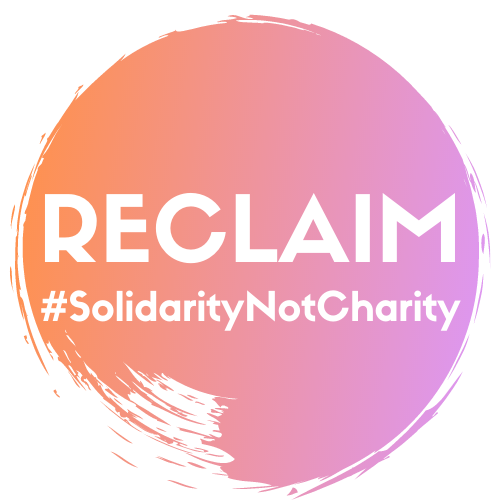STARTING OVER
- Reclaim Care
- Jun 18, 2021
- 4 min read

Back in 1982 there was a major parliamentary review of children’s social care. It would lead – eventually – to the 1989 Children’ Act. The central legislation that provides benefit even today to those in the children’s care system.
It was an unequal, racially divided time in the early 80’s. I was a degree Student in Margaret Thatcher’s Britain and spent all my free time in volunteer human rights work; developing the National Assn of Young People In Care – the first ever organisation run by and for young people in care. I had grown up in three children’s homes with my brothers since I was four years of age. As the eldest I had charge over them but frankly I was constantly worried and could barely look out for myself. Poorly run with massive problems the residential care sector far outweighed foster care but both were highly dangerous places; from imbedded paedophiles to casual abuse by Staff in the form of violence, neglect and racism. Leaving care was a major relief for most of us. Even if it we ended up in Bed sits, the Army, sleeping in the streets, or in prison cells. In 1980’s Britain the Tories were dismantling the power basis of the Unions and were massively against public spending. Children in care numbers was at an all-time high. And wards of the State were considered a major problem and a burden to the Government – both financially and socially. It was quite an experience then to go into the heart of parliament. To try to educate and influence the thinking of antiquated, out-of-touch politicians. To bring change to a broken care system that had decimated our own childhoods.
It’s that seminal experience that informs my support for any young care experiencing advocate who wishes to give their views to the Care Review today. Even if those who are running it are seen as equally biased or out of step. And despite too, the open opposition to it from some very highly regarded CEP Advocates, some of whom are my close friends. It is vital that those in care have their say at all times and not just the care Review. That those views are unfiltered and undiluted hopefully. Through the conduit and support of other Care Experienced advocates that they feel they can trust.
Back in the early 1980s I was one of four young care experienced people that attended the parliamentary select committee on children in care. My three comrades gave verbal evidence. I was much shier (than I am today). I was possibly a little embarrassed. I wanted to keep my involvement in the background and so I didn’t place my authorship on that Report. Besides these were the views and wishes of the collective. Of all of us.
“Sharing Care’ was so called because it argued for Social work and CEP co-production (before that phrase came into parlance). NAYPIC’s written submission to parliament, the forty-page Report was a collection of the views and experiences of care experienced people. The very first national policies ever. It had recommendations right across the care continuum from entering care, access to files, engagement in reviews, fostering, punishments, leaving care. The Report concluded that there should be a ‘right for every child to be involved in decisions made about them’ and that everyone coming care should know their rights and have a complaints system available. The first time that race was ever mentioned was in that Report. Sexual abuse in care too. We got almost all our demands except the complaints system and I look back on that now with all the knowledge of what was uncovered in the 1990s and think – if only…
“Did you write this?” the Chair of the Committee, looking up from reading it, asked me – as if the very act of a CEP writing a report was a major revelation. I was studying a B.A. and all my spare time was spent in the London Office of the Children’s Legal Centre developing the National Assn Young People In Care. Supporting local advocacy groups, setting up Conferences, editing a newsletter, carrying out surveys, media work and running a weekly drop in session.
The Committee commended ‘Sharing Care’ as ‘methodical, comprehensive and representative of an increasing number of children in care’ who are “becoming vocal in expressing their views” it was said to have been “highly influential” in shaping the 1989 Children’s Act. The House of Commons Committee on Children in Care stated, ‘children’s rights are now being recognised as never before.’
The Report led to funding for workers at NAYPIC full time from central Government. In effect, it was ‘Sharing Care’ and the setting up of NAYPIC that marked the beginnings of the right’s movement for the care experienced. I was invited onto the board of the Children’s Legal Centre and on the first steering group of Black and In Care. I subsequently made ‘Black And In Care’ and ‘Speakout’ - the first ever videos from the care experienced.
It was the example set via the allyship of NAYPIC with the Children’s Legal Centre that inspired me in my various ventures. The hands-off approach of a true ally. Not ‘amplifying’ our voices as they do today but respecting our association with them. This central behavious then highlights the difference between Children’s rights as opposed to the Advocacy we see today. And because the CLC stepped back and never tried to ‘help’ – it was the content (our voices) that stood out, as genuine, original and to this day ground breaking.
It’s my view that the numerous Charities and Advocacy groups, the innumerable initiatives to support the care experiencing, all of them owe their existence and their policy positions to that document. In effect, over the past thirty years, the Charities have taken the very policies that members of our community voiced in the first place and made them their platform. And the job they do now is primarily to ask this generation what they feel about those policies.
Unlike NAYPIC who never exploited individual stories these Advocacy Charities – Become, Coram, are increasingly under attack from the Care Experiencing/Experienced for doing just that. As a facilitator (before that word was used) and a video maker I never found it difficult to extract the context and the recommendation from someone’s personal story. Often, because I am Care Experienced, there was no need. And so many young advocates are prone to tell you exactly what they think should be fixed – and how.





Comments